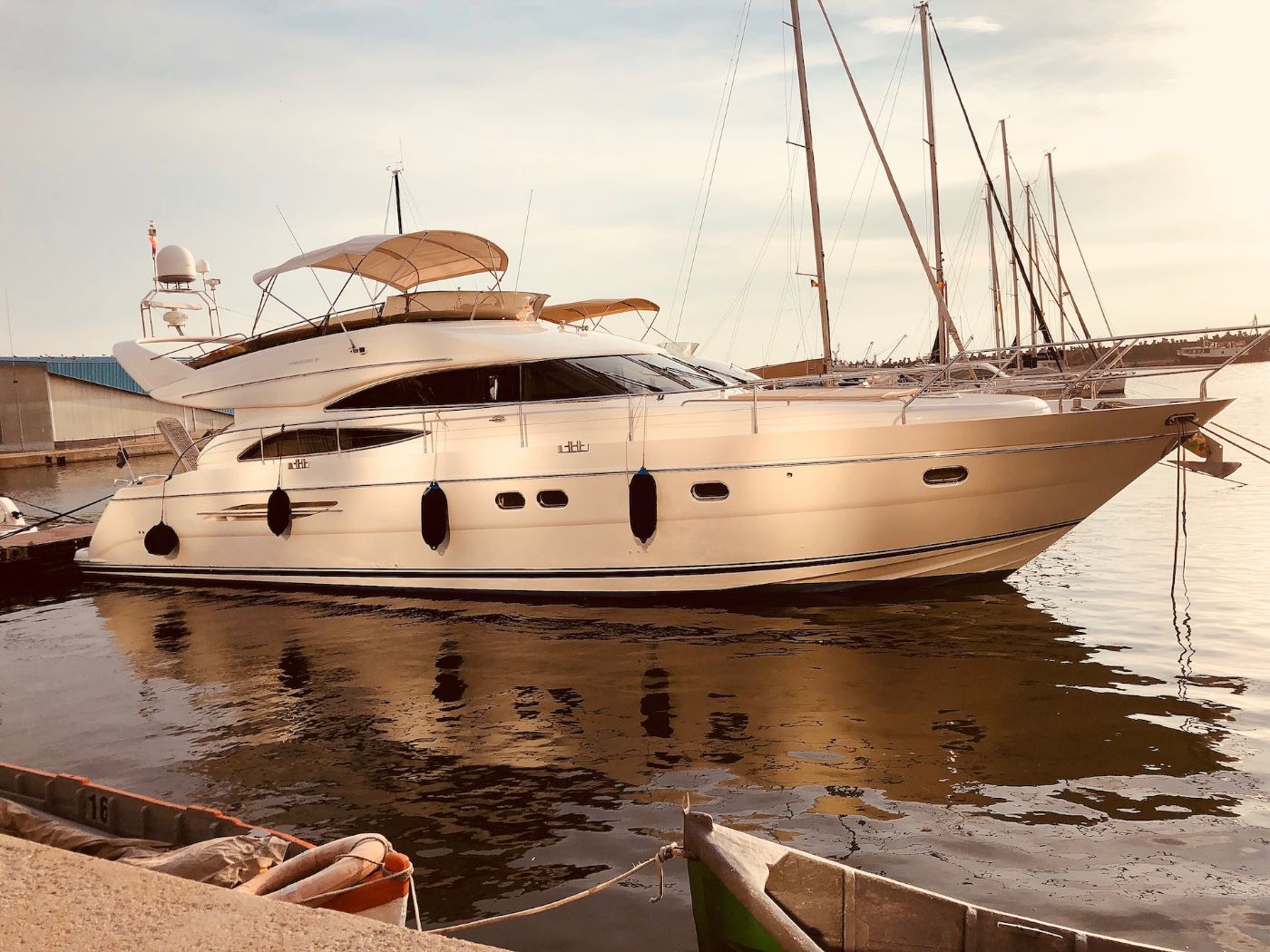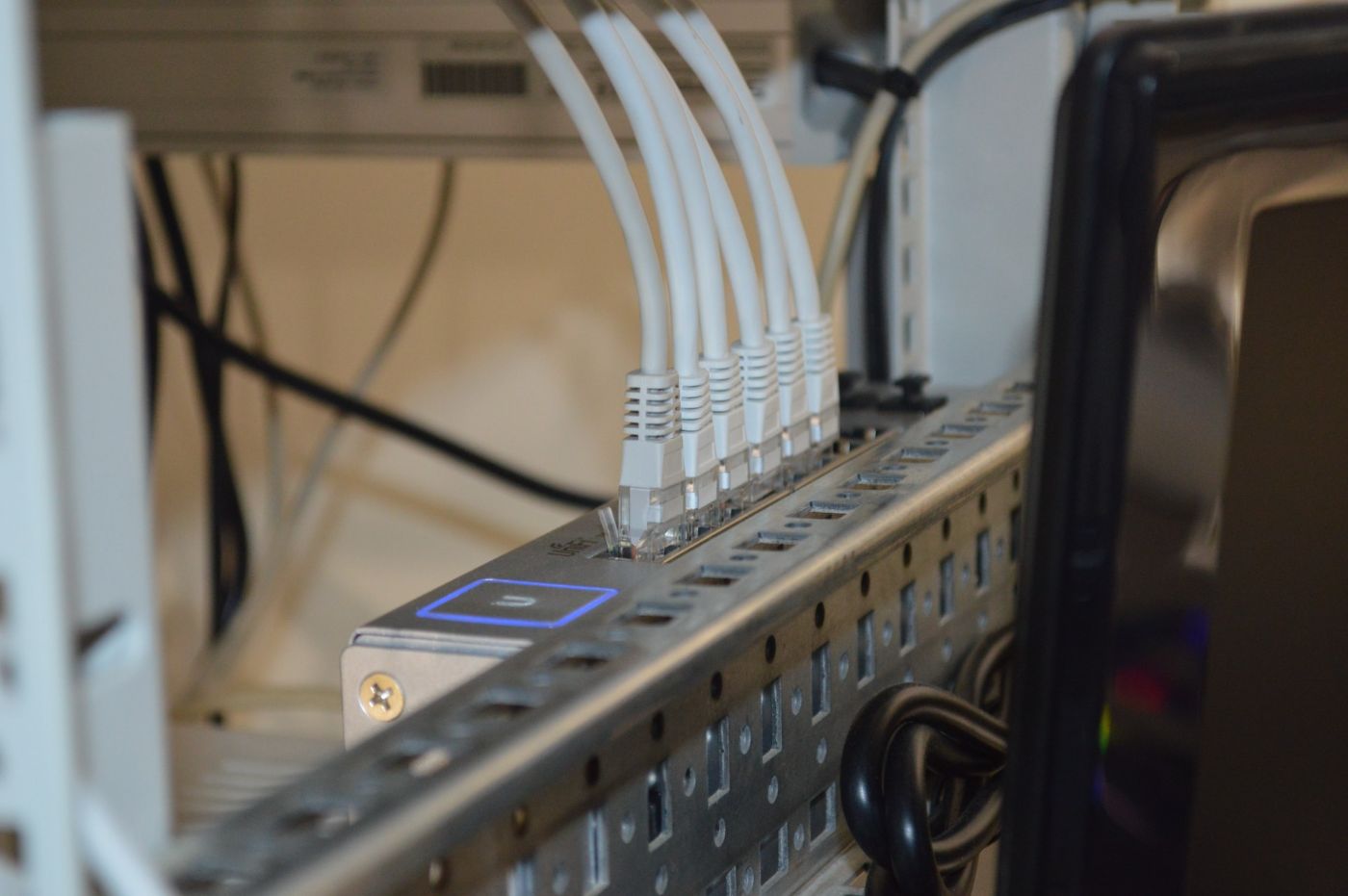How Do Yachts Get Internet? (3 Surprising Ways)
While yachts used to have limited connectivity options, technology has come a long way in recent years, and there are now several ways to stay connected even when you're far from land. In this article, we'll tackle how yachts get internet access while at sea, and these answers might surprise you.
One common way that yachts get internet access is through satellite technology. Another option is to use a cellular hotspot to connect to the internet. The last option is to use Wi-Fi boosters and extenders to connect to a nearby Wi-Fi network onshore or to extend the range of their own onboard Wi-Fi network.
Some of the most popular companies that specialize in providing internet services for boats and yachts include KVH Industries, Inmarsat, and Global Marine Networks. Let's get to know what each company provides and how much their internet services cost.
Summary
- Satellite dishes are used to capture signals from the satellite and send them to your modem, which the modem converts into internet data.
- Very Small Aperture Terminal (VSAT) systems are priced higher than satellite dishes but offer faster and more reliable internet.
- You may need to pay more for cellular data, especially if the yacht is using a lot of it.
- Installing a Wi-Fi antenna and smart box can cost more and be more time-consuming, but it can provide a more reliable and secure Wi-Fi connection.
- Inmarsat BGAN terminals are easy to set up and can also be used to make phone calls and send text messages, aside from providing internet access.

On this page:
Below are three surprising ways to connect to the internet when you're out on the water aboard a yacht:
| Internet option | Pros | Cons |
|---|---|---|
| Satellite internet | - Can connect to the internet from far out at sea - Relatively fast speeds - No need for a physical connection to the shore |
- Expensive equipment and service fees - Signal can be affected by weather conditions - Limited data usage |
| Cellular data plans | - Can connect multiple devices - Affordable options available - Easy to set up and use |
- Limited coverage in remote areas - Slower speeds compared to satellite internet - Limited data usage |
| Wi-Fi extenders | - Cost-effective option - Can connect to existing Wi-Fi hotspots - Easy to set up and use |
- Limited range - May not work well in areas far from shore - Can be affected by interference from other devices |
Method 1: Use A Satellite Internet
Satellite internet is one of the most popular ways to get internet on your yacht and here are some of the most common ways to get one:
Satellite dishes are the most common way to get satellite internet
These dishes are typically mounted on the roof of your yacht and are pointed towards the satellite. The dish captures the signal from the satellite and sends it to your modem. The modem then converts the signal into internet data that can be used by your devices.

VSAT can also help you get satellite internet
VSAT (Very Small Aperture Terminal) systems are typically more expensive than satellite dishes, but they offer faster internet speeds and better reliability. VSAT systems use a smaller dish and are typically mounted on a pedestal, which allows the dish to track the satellite as the yacht moves.
Inmarsat BGAN offers a fast satellite internet service
Inmarsat BGAN (Broadband Global Area Network) is a satellite internet service that offers high-speed internet access to yachts and other vessels.
BGAN terminals are typically small and portable, which makes them ideal for use on yachts. The terminals are easy to set up and can be used to make phone calls and send text messages in addition to providing internet access.
Low Earth Orbiting (LEO) satellites are another option for getting internet onboard
LEO satellites are typically smaller and less expensive than traditional geostationary satellites. They offer faster internet speeds and better reliability, but they require a larger antenna to capture the signal. LEO satellites are ideal for use on yachts because they are designed to provide internet access to remote areas.

Having a satellite phone with internet is one of the essentials you need to pack when sailing around the world. If you plan to circumnavigate the world, here's everything you need to sail around the world.
Method 2: Use Cellular Data And SIM cards
The following mobile network providers offer cellular plans with data allowances to connect to the internet while on board:
| Mobile network provider | Plan name | Data allowance | Speed | Estimated price |
|---|---|---|---|---|
| Verizon Wireless | Jetpack | Up to 30GB | 4G LTE | $85/month |
| AT&T | Mobile Share Flex for Business | Up to 100GB | 4G LTE | $200/month |
| T-Mobile | Global Plus 15GB | Up to 15GB | High-speed data + unlimited 2G data | $50/month |
| Sprint | Unlimited Premium | Unlimited | 4G LTE | $80/month |
Cellular internet is a type of internet connection that uses mobile networks to connect to the internet. Yachts can use cellular internet by using a cellular modem or router that connects to a mobile network provider's tower. This allows yachts to access the internet from anywhere that has mobile network coverage.
To use cellular internet on a yacht, a mobile network provider must be selected, and a plan must be chosen that suits the yacht's internet usage needs. Yachts can choose from a range of plans that offer different data allowances, speeds, and pricing.
One potential drawback of cellular internet on yachts is that it can be expensive, especially if the yacht is using a lot of data. However, it can still be a good option for yachts that need internet connectivity while out at sea and don't have access to other types of internet connections.
One thing to keep in mind when using cellular data on your yacht is roaming charges, which can be expensive, especially if you're in a foreign country. Try to check the rates for data roaming before you leave. If you're planning on using a lot of data, it might be cheaper to buy a local SIM card instead of using your home plan.
Method 3: Use The Marina Wi-Fi Or Install Wi-Fi Boosters And Wi-Fi Antenna
There are several other ways to get Wi-Fi on your yacht, including using marina Wi-Fi, Wi-Fi boosters, Wi-Fi antenna, and smart box solutions. Let's take a closer look at each of these options:
Use the marina's Wi-Fi network
Many marinas offer Wi-Fi to their guests and members, and some even offer unlimited data plans. This can be a great option if you're staying in one place for an extended period of time, as you won't have to worry about data limits or signal strength.

If you're docking your yacht at Titusville Marina in Florida, they offer free Wi-Fi connections which can save you on docking costs. This is also one of the cheapest marinas to dock a boat at when staying in Florida.
However, marina Wi-Fi networks can be slow, unreliable, and insecure. You may also experience interference from other boats or the surrounding environment. To get the most out of marina Wi-Fi, it's a good idea to invest in a Wi-Fi booster or antenna.
Use Wi-Fi boosters
A Wi-Fi booster is a device that amplifies your Wi-Fi signal, allowing you to connect to Wi-Fi networks that are further away or have weaker signals. There are several Wi-Fi boosters on the market designed specifically for boats, such as the following:
| Wi-Fi booster | Maximum range extension |
|---|---|
| Wave WiFi Rogue Pro | Up to 15 miles |
| Ubiquiti NanoStation AC | Up to 10 miles |
| Shakespeare SuperHalo | Up to 7 miles |
| Digital Yacht WL70R | Up to 3 miles |
When choosing a Wi-Fi booster, you may want to consider factors such as range, compatibility with your existing Wi-Fi network, and ease of installation. Some Wi-Fi boosters require professional installation, while others can be set up by the user.
Install a Wi-Fi antenna and smart box
A Wi-Fi antenna is a device that captures Wi-Fi signals from nearby networks and amplifies them for use on your yacht. A smart box is a device that connects to your Wi-Fi antenna and allows you to connect multiple devices to the network.
Installing a Wi-Fi antenna and smart box can be more expensive and time-consuming than other options, but it can provide a more reliable and secure Wi-Fi connection. You can also choose to install a cellular data plan as a backup in case the Wi-Fi network is unavailable.
Consider These Factors When Choosing The Right Internet For Your Yacht
Here are a few things you should consider when getting internet on your yacht:
Think about your budget
There are a wide variety of options available, ranging from simple Wi-Fi extenders to custom-built satellite systems that can cost upwards of $50,000 or more. Try to determine what you can afford and what kind of plan will give you the best value for your money.
Choose the best equipment and data plan
Satellite internet tends to offer the most reliable and consistent connection, but it can be expensive. Cellular data plans are more affordable, but the speeds and coverage can vary depending on your location.
While Wi-Fi extenders can be a good option for short-range connections, they may not be reliable in more remote areas.
Pick the best company that provides marine internet
There are several companies that specialize in providing internet services for boats and yachts and some of the most popular options include the following:
| Company name | Internet service offered | Estimated price |
|---|---|---|
| KVH Industries | Satellite internet systems for yachts and boats | $1,000 - $10,000+ per month |
| Inmarsat | Satellite internet and communication services | $500 - $5,000+ per month |
| Global Marine Networks | Satellite and cellular data plans for boats and yachts | $100 - $1,000+ per month |
| Wave WiFi | Long-range Wi-Fi systems for boats and yachts | $500 - $2,000+ for equipment and setup |
KVH Industries provides satellite internet systems for yachts and boats
KVH Industries offers high-speed broadband internet access, streaming services, and voice communication to their customers who are traveling on boats and yachts. They have been in business for over 30 years and has established itself as a leading provider of satellite communication and entertainment services for the maritime industry.
Inmarsat provides satellite internet and communication services even aboard a yacht
Inmarsat is a British satellite telecommunications company that provides mobile and fixed communication services to customers around the world. They offer a range of services, including voice and data communication, internet connectivity, and safety services for maritime, aviation, and land-based industries.

Inmarsat's satellite network covers the entire globe, providing reliable and secure communication services to their customers, even in remote and challenging locations. The company has been in operation since 1979 and has become a major player in the satellite communication industry, serving customers in over 100 countries.
Global Marine Networks provides internet solutions for yachts and other maritime vessels
Global Marine Networks specializes in satellite-based communication systems that allow yachts to stay connected to the internet and other communication networks even when they are far out at sea.
One of the key products offered by Global Marine Networks is the RedPort Halo system, which is a satellite router that provides high-speed internet access to yachts and other vessels. The Halo system is designed to work with a variety of satellite networks, including Inmarsat, Iridium, and Thuraya, which means that it can provide coverage in virtually any part of the world.
When sailing around the world, Iridium GO is a recommended good satellite phone with data for the internet and it only costs around $100 monthly.
In addition to the Halo system, Global Marine Networks also offers a range of other products and services that are designed to help yacht owners and crews stay connected while at sea. These include satellite phones, weather forecasting tools, and email and messaging services.
Wave WiFi offers long-range Wi-Fi systems for boats and yachts
Wave WiFi specializes in long-range Wi-Fi systems that allow yachts to connect to Wi-Fi networks that are located on land, even when they are far out at sea.
One of the key products offered by Wave WiFi is the Rogue Wave Pro system, which is a long-range Wi-Fi antenna that is designed to pick up Wi-Fi signals from up to seven miles away. The Rogue Wave Pro system is easy to install and can be used with a variety of devices, including laptops, smartphones, and tablets.
In addition to the Rogue Wave Pro system, Wave WiFi also offers a range of other products and services that are designed to help yacht owners and crews stay connected while at sea, such as cellular routers, satellite antennas, and marine-grade Ethernet switches.
Did you find the answer to your specific question?
👍 0 👎 0




Leave a comment